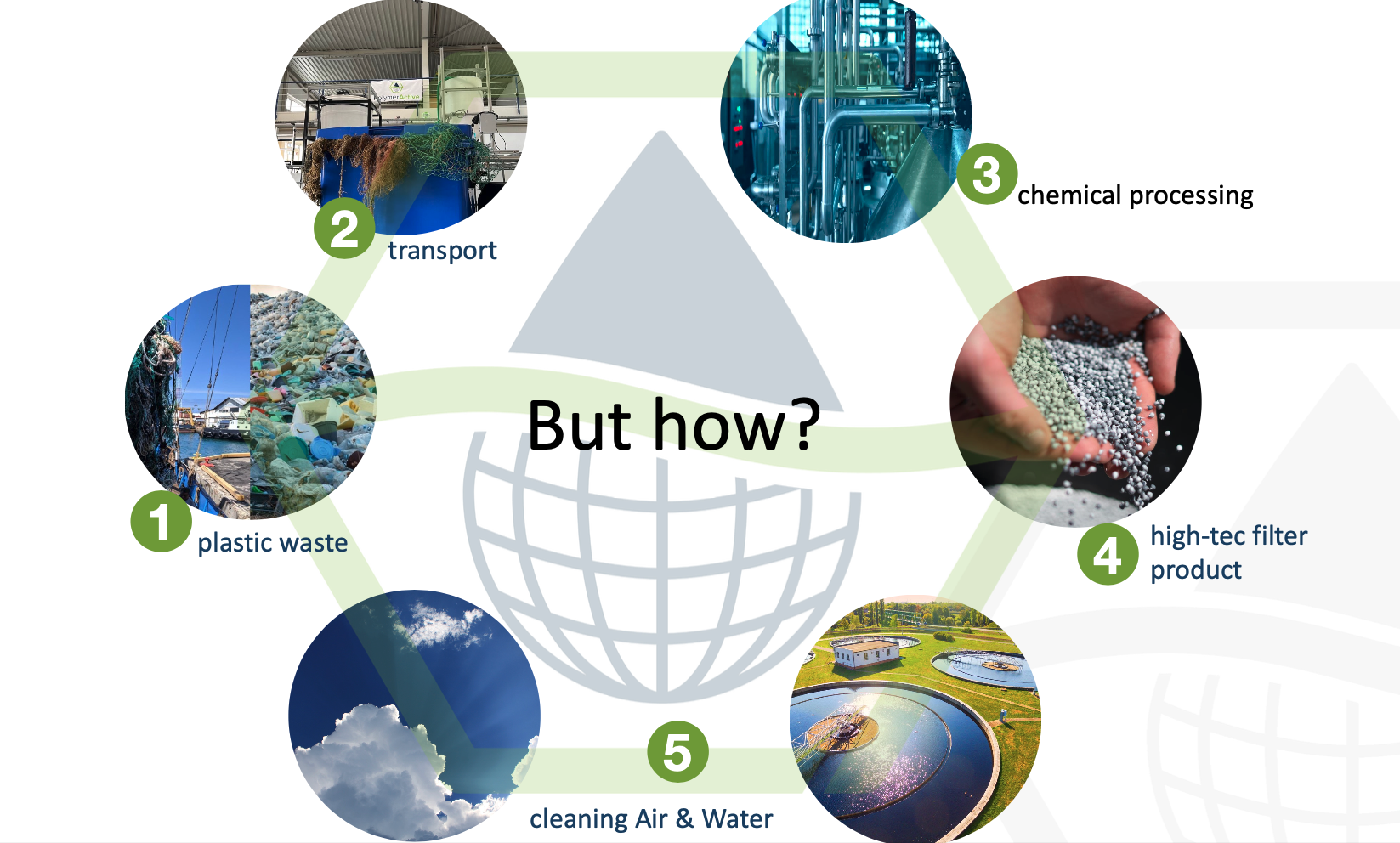FROM ZERO TO HERO
Plastic waste everywhere and a polluted environment - there has to be a solution! No sooner said than done - but it didn't work out that quickly.
In view of the growing environmental impact of plastic waste worldwide, we recognized the need to develop innovative and sustainable filter systems. We not only want to reduce plastic waste, but also convert it into valuable resources. After all, waste is not the end of a product, but the beginning of a new life cycle.This challenge motivated us to develop a revolutionary upcycling process that makes it possible to transform plastics into porous pollutant adsorbers.
RETHINKING THE PLASTICS CYCLE
Sustainable upcycling - Clean environment thanks to plastic
Sounds strange, but it works surprisingly well. PolymerActive GmbH transforms unavoidable plastic waste into sustainable solutions for filtering pollutants. With our innovative upcycling process, we produce porous plastic adsorbers that effectively clean wastewater and exhaust air.
Our method uses the adsorptive properties of plastics in a similar way to activated carbon. Plastic waste is converted into a viscous solution, which is then precipitated into porous granules. These granules offer an enormously increased surface area to which pollutants such as pharmaceutical residues, hormones and other industrial waste can be efficiently bound, with our granules serving as the basis for hybrid materials that can be specifically adapted to different pollutants using additional adsorbents. The open-pored structure of our “plastic framework” ensures an optimum contact surface with the medium to be filtered, be it water or air.
Our products are an environmentally friendly alternative to activated carbon, which is typically obtained from lignite or hard coal. We currently use polyamide waste and aim to process fishing nets and other waste materials in the future. We are continuously working on expanding our portfolio and using even more plastic waste to make the material cycle sustainable.
Our technology is robust against contamination and age-related damage to plastics, which means that they are not disposed of but remain in circulation for at least one more life cycle. Ideally, our granulates can be regenerated through desorption and reused in the long term.

WHERE ARE WE AT?




